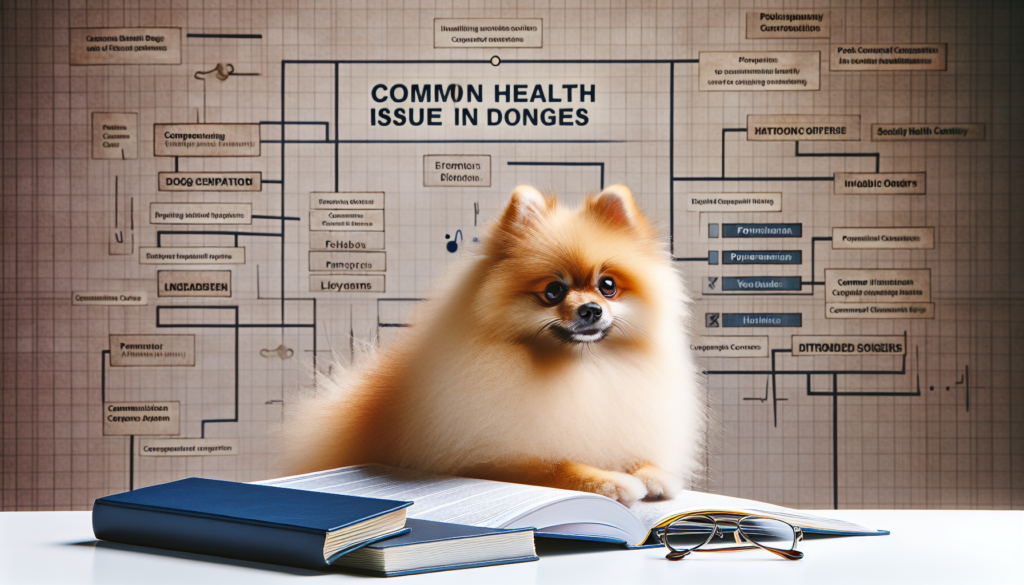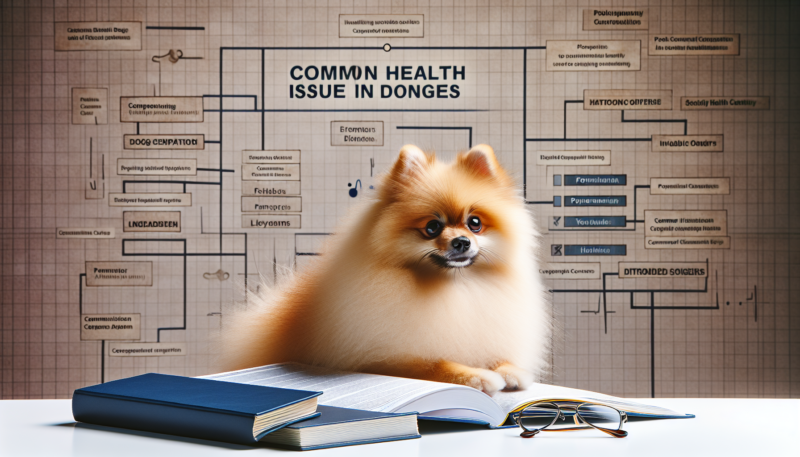Imagine having a furry friend that brings so much joy and love into your life. But just like any living creature, they can also experience health issues. In this article, we’ll explore some common health issues that Pomeranians, a popular small dog breed, may encounter. By understanding these potential problems, you can better care for your Pomeranian and ensure they live a healthy and happy life by your side. So let’s dive in and explore the world of common health issues in Pomeranians.
Common Health Issues in Pomeranians
Pomeranians are known for their adorable appearance and friendly nature. These small, fluffy dogs make great companions and are loved by many. However, just like any other breed, Pomeranians are prone to certain health issues. It’s important for owners to be aware of these common health problems to ensure the well-being and happiness of their furry friends. In this article, we will discuss the top 10 health issues that Pomeranians may face, along with some useful information and tips to help you take care of your beloved pet.

1. Dental Problems
Dental problems are common among Pomeranians, just as they are in many small dog breeds. Due to their small size, Pomeranians are more susceptible to dental issues such as tooth decay, gum disease, and tooth loss. Poor dental hygiene can lead to serious health complications, as bacteria from the mouth can enter the bloodstream and affect the heart, liver, and kidneys. To prevent dental problems, it is important to establish a regular dental care routine for your Pomeranian, including daily toothbrushing and regular dental check-ups with a veterinarian.
2. Luxating Patella
Luxating patella is a condition where the kneecap slips out of its normal position, causing pain and discomfort. Pomeranians are prone to this condition due to their small size and their genetic predisposition. Symptoms of luxating patella in Pomeranians include limping, difficulty in walking, and reluctance to jump or climb stairs. If you notice any of these signs, it’s important to seek veterinary care to determine the severity of the condition and discuss appropriate treatment options, which may include medication or even surgery, depending on the case.
3. Hypothyroidism
Hypothyroidism is a hormonal disorder that affects the thyroid gland, which plays a crucial role in regulating metabolism. Pomeranians can be predisposed to hypothyroidism, which can lead to weight gain, lethargy, hair loss, and skin issues. If you suspect your Pomeranian may have hypothyroidism, it’s important to consult with a veterinarian who can perform the necessary tests to diagnose the condition. Treatment usually involves lifelong medication to regulate the thyroid hormone levels and ensure your Pomeranian leads a healthy and active life.
4. Allergies
Just like humans, Pomeranians can suffer from allergies too. These allergies can be caused by various factors, including food, pollen, dust mites, or certain chemicals. Allergic reactions in Pomeranians can manifest as itchiness, skin irritation, sneezing, and gastrointestinal issues. If you notice any signs of allergies in your Pomeranian, it’s important to identify and eliminate the allergen from their environment or diet. In severe cases, your veterinarian may recommend allergy testing and prescribe medication to manage the symptoms.

5. Heart Problems
Pomeranians are susceptible to various heart problems, including congestive heart failure, mitral valve disease, and arrhythmias. Symptoms of heart issues in Pomeranians may include coughing, difficulty breathing, intolerance to exercise, and fainting episodes. Regular veterinary check-ups are crucial to monitor the health of your Pomeranian’s heart. Treatment for heart problems may include medication, dietary changes, and lifestyle modifications to provide the best possible care for your furry friend’s heart health.
6. Hip Dysplasia
Hip dysplasia is a common orthopedic condition that affects many dog breeds, including Pomeranians. It is a hereditary condition where the hip joint does not develop properly, causing pain, lameness, and difficulty in mobility. While hip dysplasia cannot be cured, there are various treatment options available to manage the condition and improve your Pomeranian’s quality of life. These options may include pain medication, physical therapy, weight management, and in severe cases, surgical intervention.
7. Eye Conditions
Pomeranians are prone to a variety of eye conditions, such as cataracts, dry eye syndrome, and progressive retinal atrophy. These conditions can lead to visual impairment or even blindness if left untreated. Regular eye examinations by a veterinarian are important to detect any potential eye problems early on. Treatment for eye conditions in Pomeranians may include medication, eye drops, or in some cases, surgery. It’s important to provide proper eye care for your Pomeranian to maintain their overall health and well-being.
8. Obesity
Obesity is a common health issue in Pomeranians and can lead to a myriad of other health problems. Due to their small size, even a few extra pounds can put strain on their joints and internal organs. Maintaining a healthy weight for your Pomeranian is crucial for their overall well-being. This can be achieved through a balanced diet, portion control, regular exercise, and avoiding excessive treats. Consult with your veterinarian to determine the ideal weight range for your Pomeranian and to establish a suitable diet and exercise plan.
9. Skin Issues
Pomeranians can be prone to various skin issues, including allergies, dry skin, hot spots, and bacterial or fungal infections. These conditions can cause discomfort, itching, and hair loss. Regular grooming and proper skincare are essential for maintaining your Pomeranian’s skin health. This may involve frequent bathing using gentle shampoos, regular brushing to remove loose hair and prevent matting, and addressing any underlying allergies or infections with medications prescribed by a veterinarian.
10. Collapsed Trachea
Collapsed trachea is a common condition in small dog breeds, including Pomeranians. It is characterized by the weakening of the tracheal rings, causing the windpipe to collapse, leading to coughing, wheezing, and difficulty breathing. Collapsed trachea can be genetic or develop due to factors such as obesity or respiratory infections. Treatment options for collapsed trachea may include medication, cough suppressants, weight management, and surgery in severe cases. Regular veterinary care and avoiding potential triggers can help manage this condition and improve your Pomeranian’s quality of life.
In conclusion, while Pomeranians are delightful dogs to have as pets, they are prone to certain health issues that owners need to be aware of. By familiarizing yourself with these common health problems and taking preventive measures, you can ensure that your Pomeranian stays happy, healthy, and enjoys a long and fulfilling life by your side. Regular veterinary check-ups, maintaining a balanced diet, providing proper dental care, and addressing any health concerns promptly will go a long way in keeping your Pomeranian in optimal health. Remember, your furry friend depends on you for their well-being, so be proactive and attentive to their healthcare needs!
